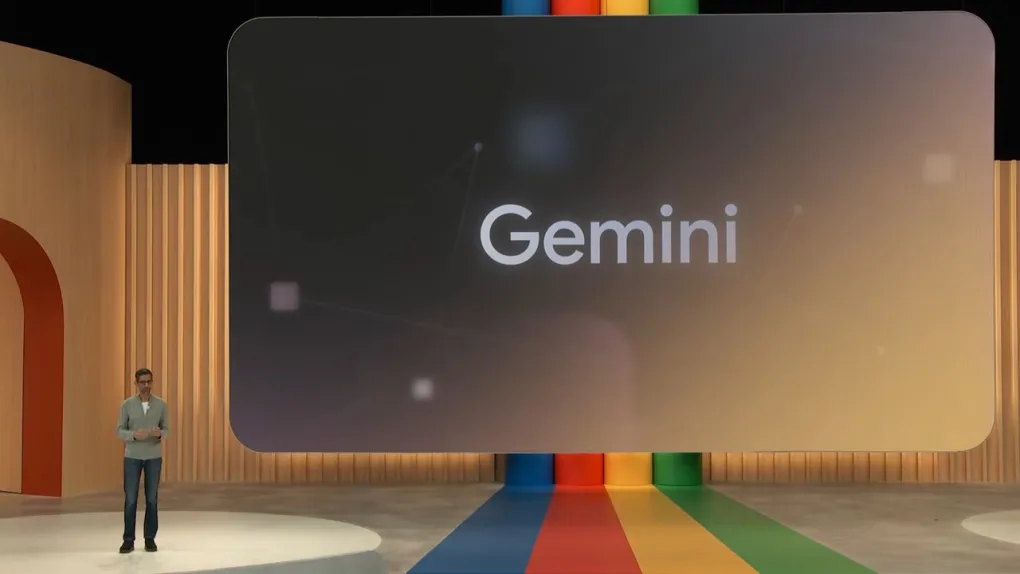In 2025, one of the most significant changes in the digital world is not a new device or social app—it is the way people search for information. Google, the undisputed king of search for over two decades, has introduced a radical transformation with its Gemini AI model. While AI integration into search engines is not new, Gemini represents a foundational shift. It is not just improving search results—it is changing how people interact with knowledge itself.
At a time when attention spans are short, trust in online information is fragile, and the volume of content is overwhelming, Google is betting big on Gemini. But with change comes consequence. This article explores what Gemini is, how it reshapes search, what it means for creators, brands, and users, and whether this shift marks a revolution or an overreach.
What Is Gemini and Why It Matters
Gemini is Google’s next-generation AI system that combines the power of large language models with traditional search architecture. It is designed not only to answer questions but to understand context, generate nuanced explanations, and offer proactive solutions.
Unlike previous AI-powered features that supplemented search results with small snippets or autocomplete, Gemini deeply integrates itself into the experience. The goal is to transform Google Search from a link-finding tool to an answer-generating assistant.
Where past searches required users to interpret lists of blue links, Gemini aims to give direct, structured, conversational answers. Whether you’re asking how to build a business, plan a trip, or understand climate science, Gemini provides comprehensive summaries, data-backed analysis, and contextual follow-ups—without needing to click through multiple websites.
The Evolution of Search: From Links to Language
To understand the significance of Gemini, it helps to revisit how Google search evolved.
- First generation: Search was keyword-based. Results were sorted by relevance and backlinks. The experience was largely manual and dependent on user effort.
- Second generation: Google integrated semantic understanding and voice input. Search started understanding intent, not just words.
- Third generation: AI tools like RankBrain and BERT introduced contextual comprehension, refining how Google matched queries to content.
- Gemini generation: Google now uses AI to synthesize, generate, and personalize information, with Gemini leading this new frontier.
In short, Gemini represents the shift from reactive search to intelligent response. It no longer just helps users find information—it helps them understand, compare, and even act on it.
How Gemini AI Works Inside Google Search
Gemini is built on multimodal capabilities. It can process and combine text, images, code, and even audio data to provide rich responses. When a user types or speaks a question, Gemini draws from Google’s massive index of the web but also adds original generative AI output.
Key features include:
- AI Overviews: When users search complex topics, Gemini offers detailed breakdowns at the top of results. These are not copied summaries but fresh AI-generated answers.
- Follow-Up Prompts: After answering, Gemini suggests related questions users might ask next, creating a fluid, interactive session rather than a static search.
- Source Citations: Where possible, Gemini links to original content creators and authoritative sources, though some critics argue the prominence of these links is diminishing.
- Multimodal Queries: Users can now combine images with text—for instance, uploading a damaged product photo and asking for repair options.
This is a more conversational, AI-assisted approach that attempts to bridge the gap between search engine and digital assistant.
The Impact on Content Creators and SEO
For years, publishers, bloggers, and media platforms built their strategies around how Google indexed and ranked content. With Gemini, that ecosystem is being reshaped—and not everyone is happy about it.
Here are the main concerns from content creators:
- Less Click Traffic: If Gemini answers a question fully on the search page, users may never click through to the original article. This has major implications for ad revenue and engagement.
- Content Cannibalization: Some argue Gemini is repackaging their work without proper credit or benefit to the original creators.
- Changing SEO Rules: The traditional focus on keywords, backlinks, and metadata is being replaced by more abstract ranking signals tied to topic depth, factual density, and contextual fit.
To adapt, many content producers are now optimizing for Gemini’s summaries, focusing more on building trust, authority, and structured content that AI tools can recognize and cite. While this requires a new strategy, some see it as an opportunity to rise above shallow content farms and produce meaningful, evergreen knowledge.
User Reactions: A Split Opinion
For the everyday internet user, Gemini offers both promise and friction. On one hand, people appreciate receiving direct, detailed answers without having to sift through pop-up-riddled websites. On the other hand, some users miss the variety of perspectives and the deeper discovery process that older search formats encouraged.
Early feedback from global test markets reveals:
- Users find Gemini especially useful for research, technical questions, and step-by-step tasks.
- There is growing concern about hallucinations—where the AI offers incorrect or misleading information presented as fact.
- Some users are uneasy with how much the AI guesses their intent, raising subtle concerns around data profiling and personalization.
Google has stated that Gemini is still evolving and that human oversight, community feedback, and transparency will remain part of the process.
Ethical and Competitive Challenges
Gemini is not just a product innovation—it is a competitive response. With OpenAI’s ChatGPT and Microsoft’s Copilot integrating directly into Bing, Google faced pressure to defend its dominance. But the company’s rapid AI rollout also raises big questions.
1. Trust and Accuracy: How can users verify AI-generated answers, especially when they no longer browse the original source?
2. Bias and Representation: Gemini is trained on a large, curated portion of the web. Experts question which voices are prioritized, which are filtered out, and whether AI amplifies systemic bias.
3. Copyright Disputes: Several publishers and news organizations are now exploring legal avenues, arguing that Gemini profits off their work without proper licensing.
4. Environmental Concerns: Running large-scale AI models demands immense computing power and energy, contributing to environmental debates around sustainability in tech.
The Road Ahead: Gemini and the Future of Information Access
What does all this mean for the future of digital knowledge?
Gemini’s full impact is still unfolding, but a few trends are already becoming clear:
- Search is becoming personalized, predictive, and passive. Users may soon get answers before they even type a query.
- The web will split between AI-readable and human-readable content. Structuring data clearly is becoming more important than catchy headlines or clickbait.
- Creators must evolve, producing content that serves both AI and human needs—highly accurate, deeply useful, and clearly authored.
- Platforms will compete on AI trust, not just features. Users will begin to choose tools that feel fair, factual, and transparent.
In many ways, Gemini is not just changing search—it is changing the very contract between humans and information. The question now is whether this shift empowers people with knowledge or distances them from the source of truth.
Conclusion:
Google’s Gemini is more than a search upgrade. It marks a transformation in how people ask questions, receive answers, and navigate the web. It promises convenience, speed, and depth—but it also forces new debates about trust, credit, and the future of content.
For users, the goal is to stay informed, not just about the answers AI gives, but about where those answers come from. For creators and publishers, the task is to adapt intelligently, embracing quality, clarity, and ethical integrity in a space now shaped by algorithms and artificial reasoning.As search changes forever, the challenge is not just technological—it is cultural, educational, and deeply human.


